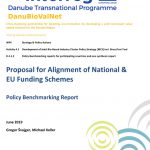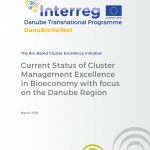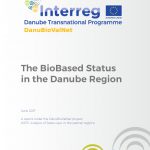Proposal for Alignment of National & EU Funding Schemes
This report was produced within the frame of the DanuBioValNet project (Deliverable 4.1.2 Policy Benchmarking Report), co-funded by European Union funds (ERDF, IPA) through INTERREG Danube Transnational Programme. It was prepared by Gregor Švajger (MIZS) and Michael Keller.





